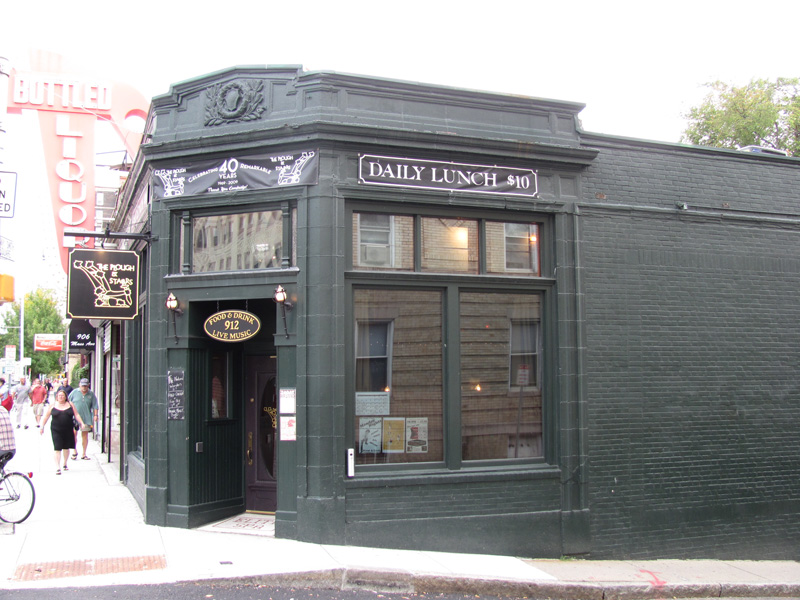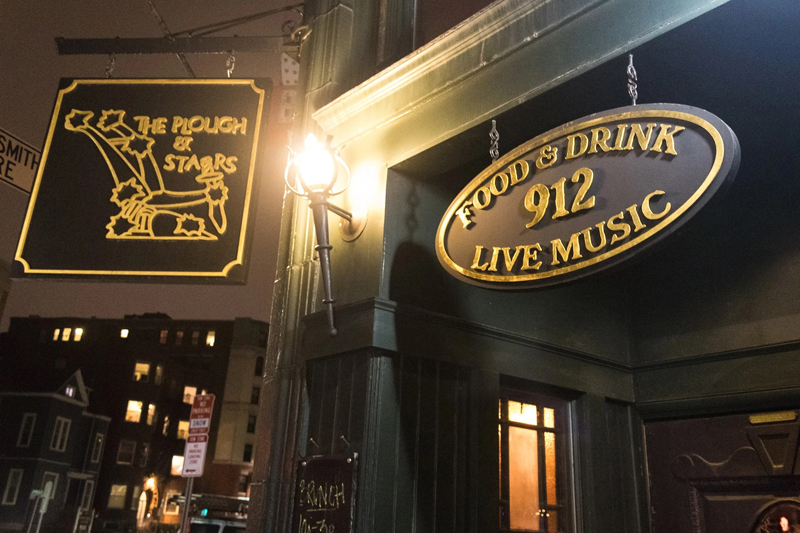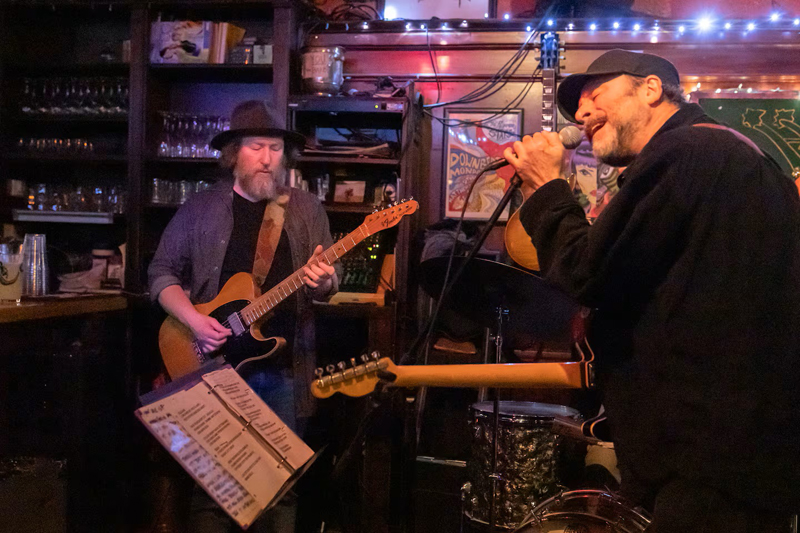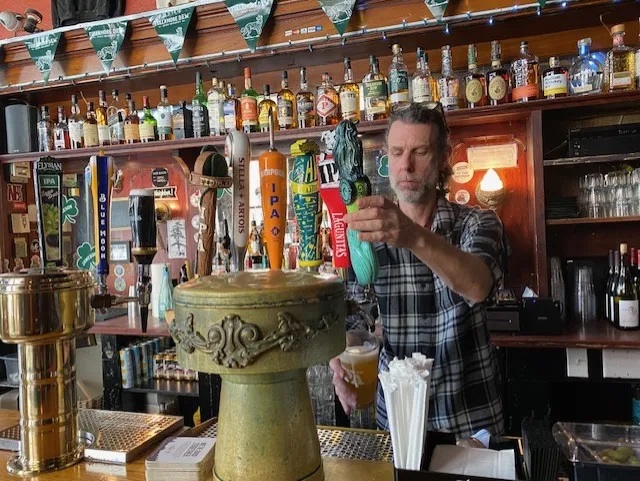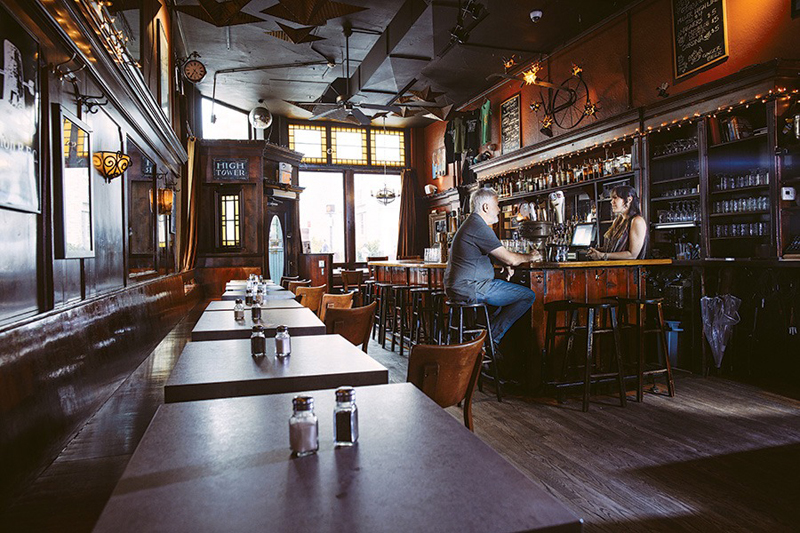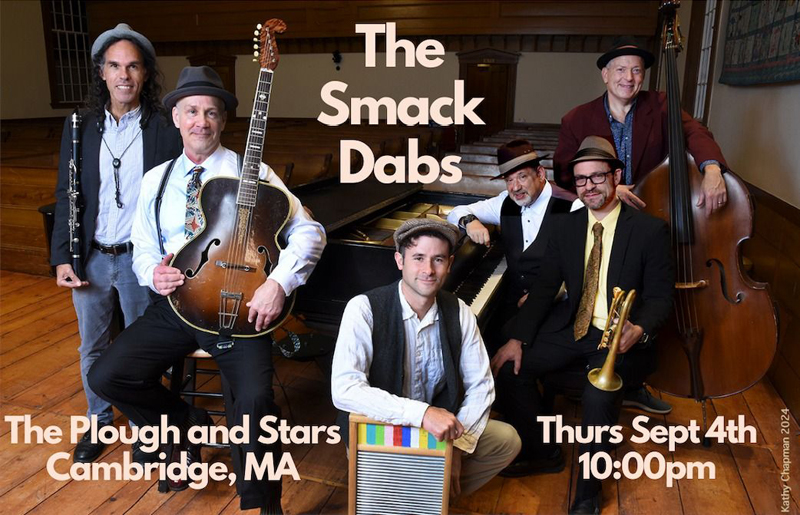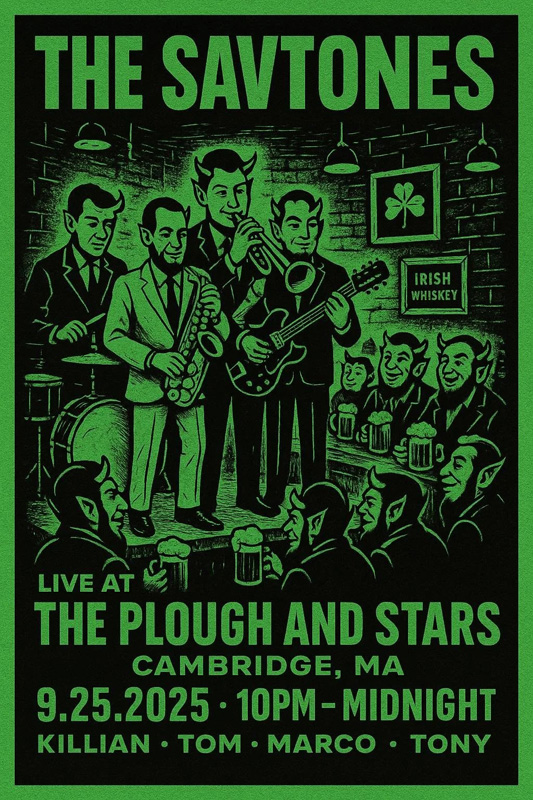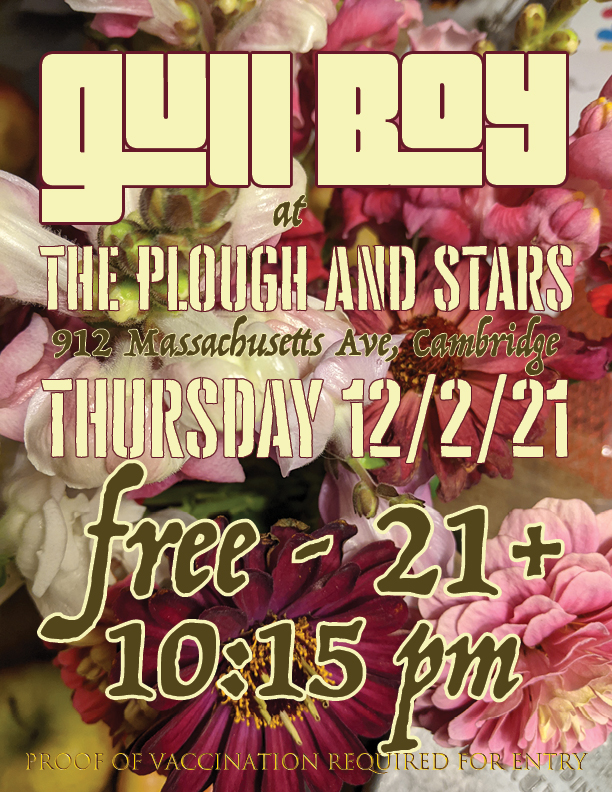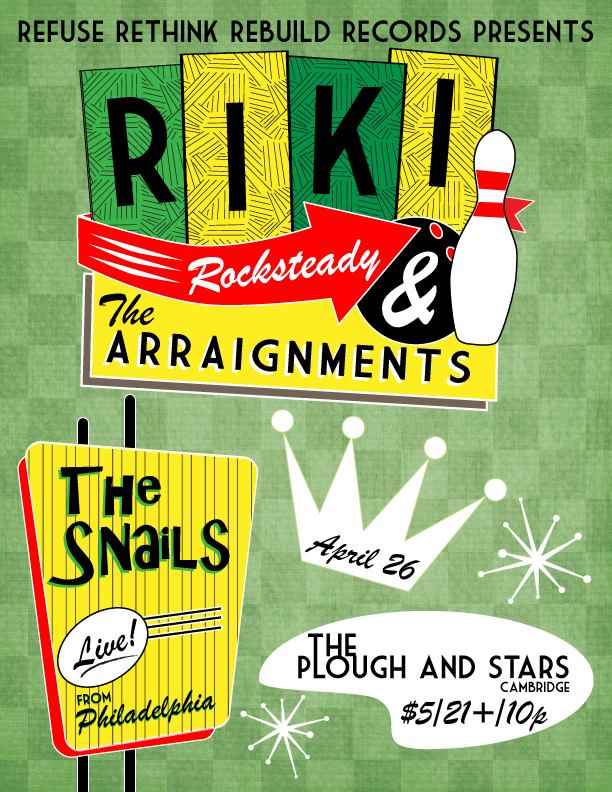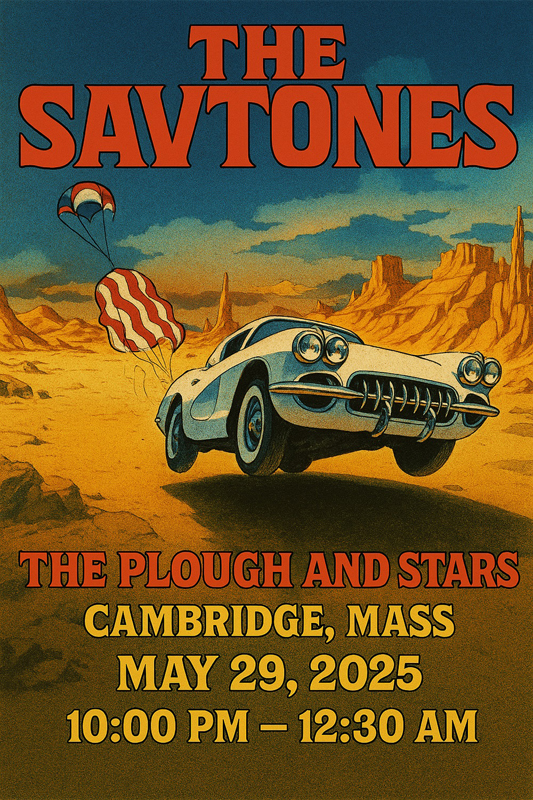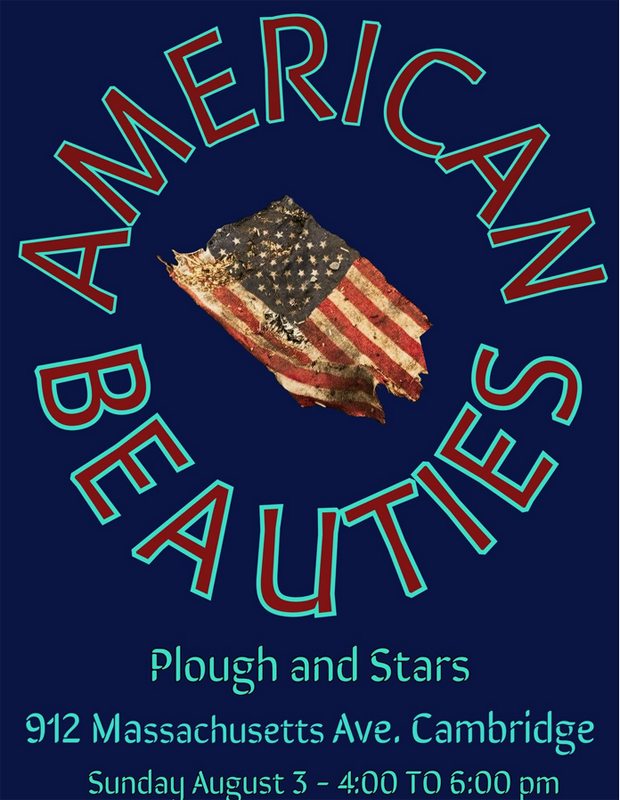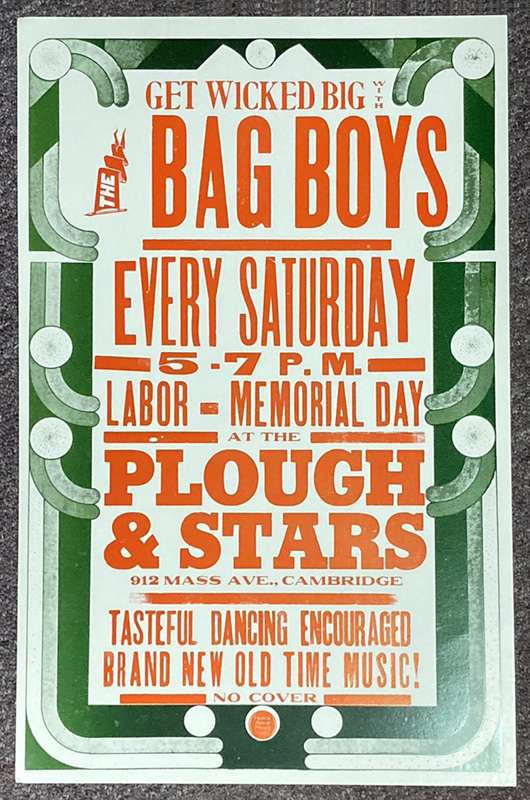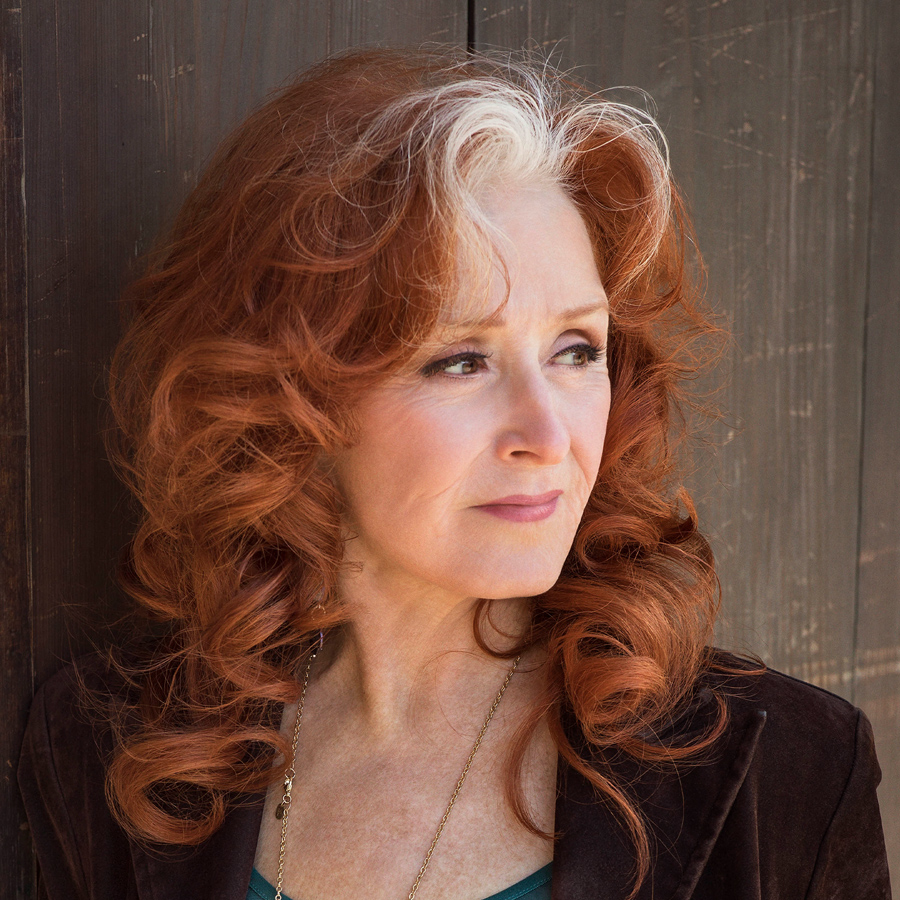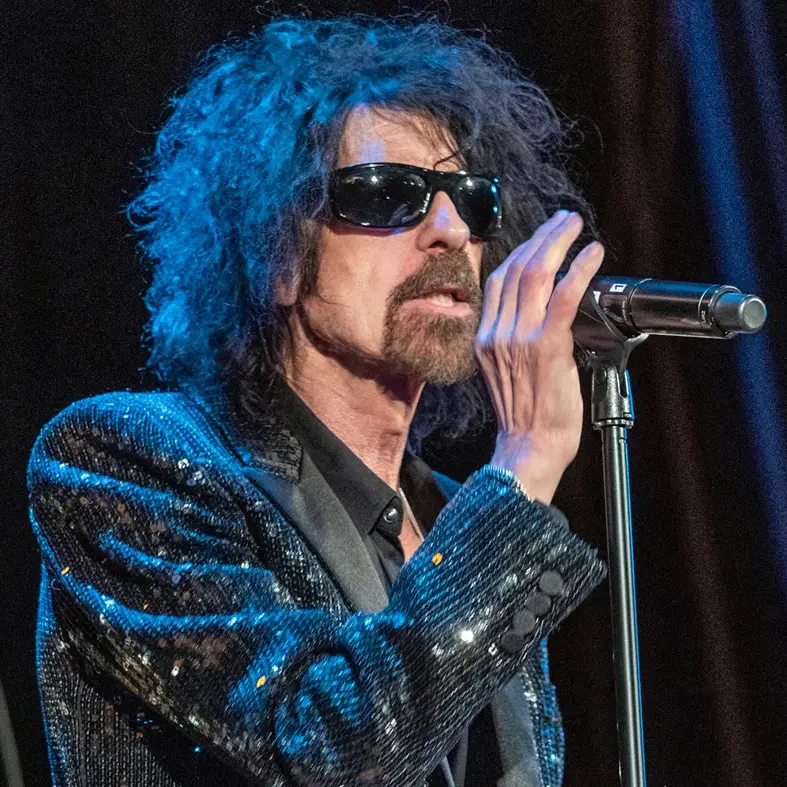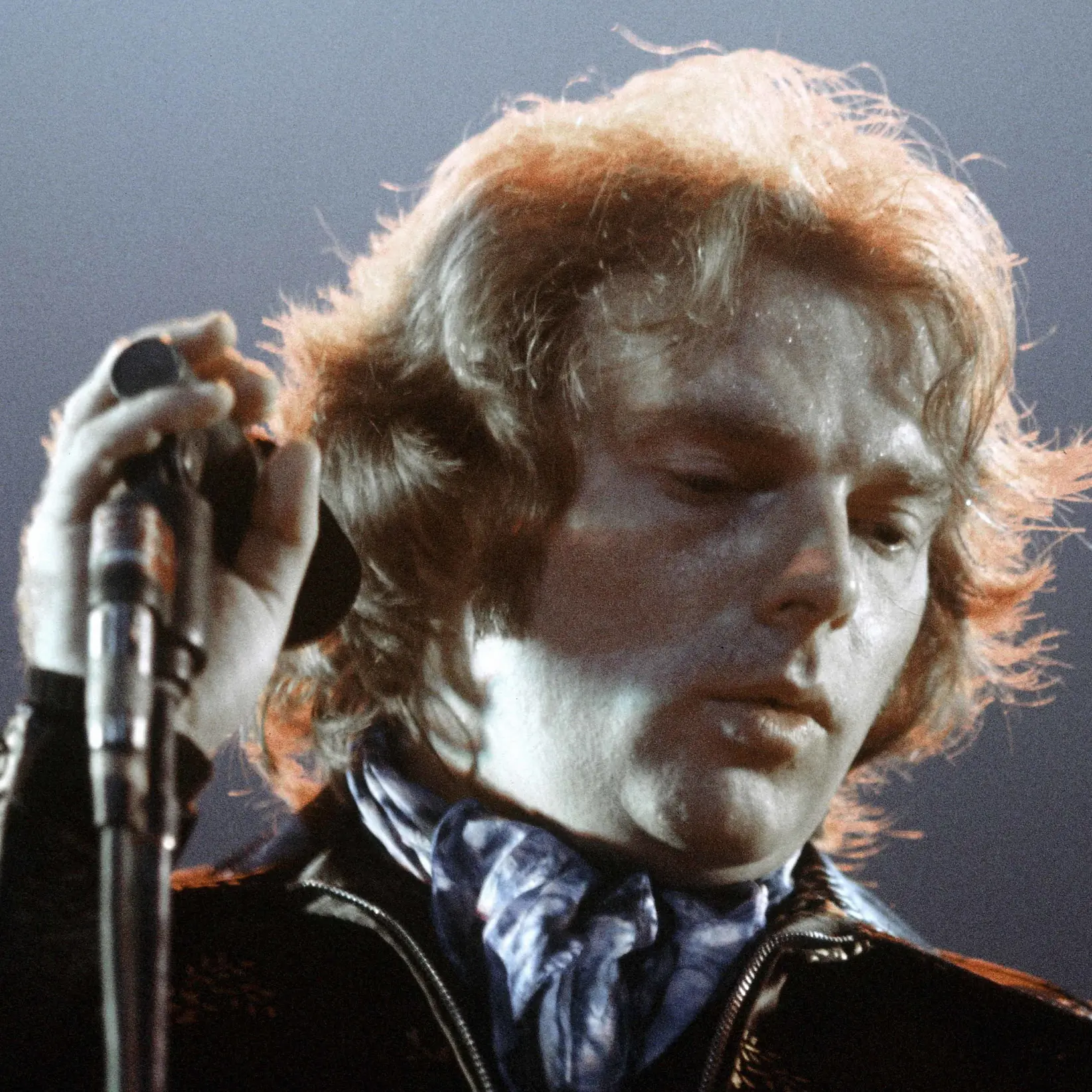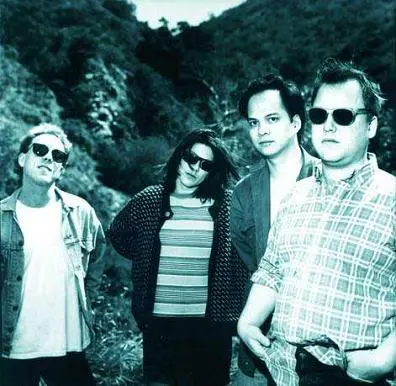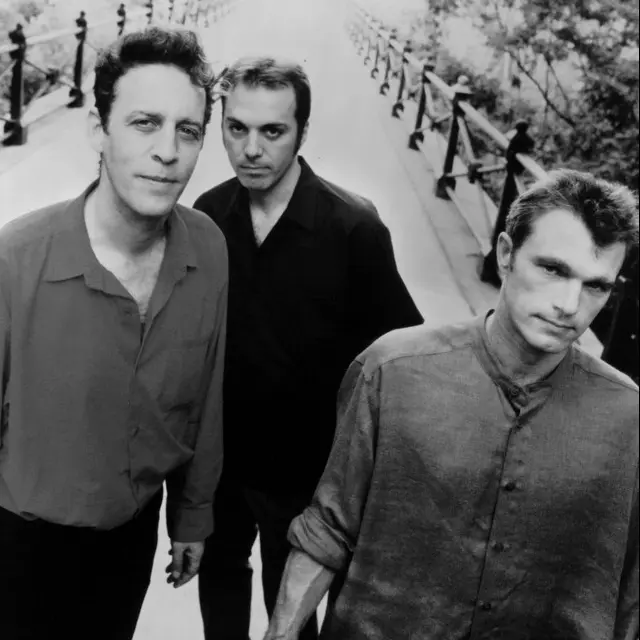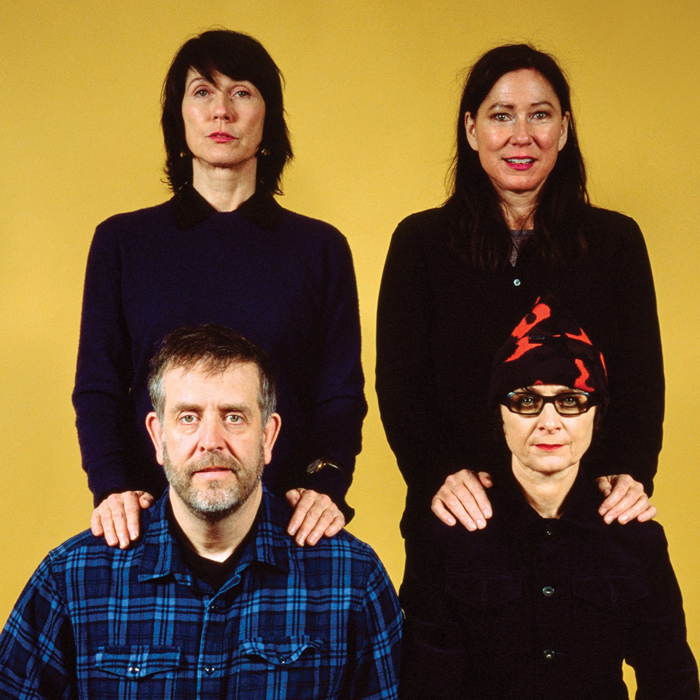The Plough and Stars
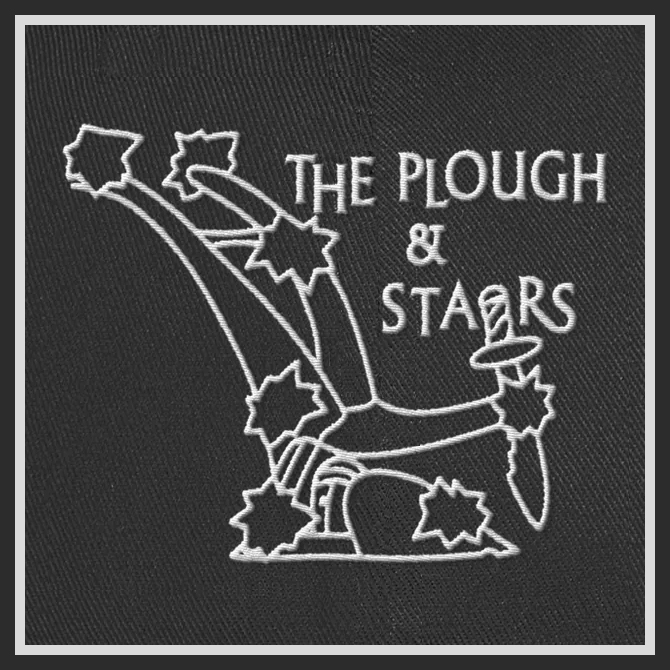
Smack dab between Central Square and Harvard Square in Cambridge, The Plough and Stars is one of the city’s most legendary bars and live-music venues, as it’s been for more than half a century. Given its proximity to the nation’s oldest college, it’s not surprising that it also holds a significant spot in literary history and has been home base for various international peacekeeping efforts. With a deep sense of community and a legion of loyal patrons, The Plough and Stars has always stood as a constant in a sea of change.
OPENING, NAME, DESIGN
Founders Peter and Padraig O’Malley came to the Boston area from Dublin in the mid-‘60s. Soon after that, the brothers opened the Plough at 912 Massachusetts Avenue with ten other investors, though memories differ about the exact year. “My father, Peter, is sure the doors first opened in 1968. Others claim 1969. We closed for a few months in 2005, so all can agree that, at some point in 2019, the Plough will have been going for 50 years,” wrote Gabriel O’Malley, one of the bar’s current owners, on Facebook.
The venue’s name comes from the Sean O’Casey play “The Plough and the Stars” (about the 1916 Easter Rising in Ireland) and the space has changed very little over the decades. The floor of the corner entranceway still advertises the Elite Spa, the previous establishment at the space. The wine-red walls and wooden benches along the perimeter are warm and inviting, and one of the small tables by the door is inlaid with a chessboard. Stained-glass windows, remnants of the Elite Spa days, sit atop the large windows, letting the afternoon light stream in. Above the wooden shelves behind the bar, there’s an ancient wooden hand plow adorned with seven stars, the namesake constellation incarnate; tin stars hang from the ceiling and white Christmas lights are strung throughout. Stepping inside makes newcomers feel welcome amidst the regular clientele, some of which have been visiting since before Watergate.
NOTABLE APPEARANCES, PATRONS
The O’Malley brothers realized early on that music would be a key element in establishing The Plough and Stars’ place in the neighborhood. With a capacity of only about 45, it’s one of the smallest live-music venues in Cambridge and the surrounding area, and the room’s cozy feel encourages people to focus on the performers. The back corner, next to the vintage bar, is cleared for musicians, meaning that the audience is only inches away. Bartender Daniel Savage says the bar generally reaches capacity, especially on Tuesdays, when Johnny Trama and the B3 Kings have a standing gig. There are both afternoon and evening bookings on weekends and the narrow space provides enough room for dancing, especially at afternoon shows.
In 1975, The Plough and Stars instituted a jazz brunch featuring drummer Bunny Smith. It proved so popular that the intersection of Mass. Ave. and Hancock Street is now named after him. Other notable acts who have performed at The Plough and Stars include Mark Sandman (fronting Treat Her Right on Tuesdays in the late ’80s, before he formed Morphine), G. Love & Special Sauce, The Ray Corvair Trio, Triple Thick, Speedy Ortiz, “Spider” John Koerner, Kim Deal of Pixies and The Breeders, Tommy Ramone and Greg Ginn of Black Flag. Peter Wolf has been spotted at the bar and rumor is that Van Morrison wrote parts of 1968 album Astral Weeks at the Plough.
In the early years, the area surrounding the Plough was predominantly working class, and the clientele reflected that. “It was real working class back in the 1960s,” owner Gabriel O’Malley told The Boston Eater, “There were also a lot more off-the-boat Irish in the 1960s, ’70s, and early ’80s. In the ’90s, all of Boston began getting a facelift, for better or worse.” Throughout its existence, however, the Plough has attracted a liberal dose of academics from MIT and Harvard, writers and artists, so one could never be sure who they might wind up rubbing shoulders with; on any given day, the person on the next stool could have been Bonnie Raitt, Philip Roth, David Mamet, a MacArthur fellow or owner/peace activist Padraig O’Malley. One recent visit found a visitor from Arkansas enjoying a pub culture that doesn’t exist in his home state alongside a former Plough bartender who was paying a visit on the other. Today, according to bartender Daniel Savage, “the Plough and Stars is a great place to work, and a great place to hang out.” He did the latter for several years before taking up the spot behind the bar, he says.
PLOUGHSHARES, GLOBAL PEACE INITIATIVES
A number of enterprises have grown out of the Plough, including the literary magazine Ploughshares, established in 1971 by Peter O’Malley and DeWitt Henry. Several covers and vintage ads for the still-running journal are displayed on the walls, along with one of Peter’s musical compositions. True to its barroom essence, there’s also a brass plaque celebrating the birth of the Cooley Distillery in 1970 as “The Only Independent Irish Whiskey Distillery in the World” (before it was acquired by Suntory Global Spirits in 1987).
But perhaps the most important idea to blossom from within the narrow confines of the Plough and Stars is founder Padraig O’Malley’s work towards global peace, particularly the Good Friday Agreement in Northern Ireland. In the documentary The Peacemaker (2016) by James Demo, Padraig says, “… all the income that I get out of here funds my work. Without it, I could not do any of the work that I do. The important thing about this place…is this is where my involvement with Northern Ireland began.” He describes his idea to get all of the players to speak together in one forum, and how he invited them to the US for that purpose. He goes on to say, “Every day we would haul by truck liquor from the Plough and Stars, enough to last everybody every night for seven days. And people drank together, argued together, sang songs together, then during the day point fingers at each other…They were living at a frantic pace, drinking until four in the morning, and we had people dragging them out of bed at 8:30…” According to The Irish Times, the bill came to $100,000, and O’Malley put a $20,000 mortgage on the bar to help cover it; without those talks, the terms of the accord might never have been agreed, the paper says. Similar peace processes have involved South Africa, Iraq and other nations and Padraig has written a number of books about peacekeeping efforts around the world; several of their covers are framed and displayed at the Plough.
After more than half a century, The Plough and Stars continues to be a gathering place for a constellation of musicians, artists, academics and others in and around the cross-cultural mecca that is Cambridge, Massachusetts. Providing live music five days a week – Mondays are for trivia and Wednesdays are quiet nights – it’s a place where everyone feels welcome, whether they’re first timers or regulars who’ve been stopping by for a pint or two since the space first opened. In an age when the neighborhood bar is becoming less and less of a fixture, it’s as vibrant and vital venue as there’s ever been in Cambridge – or anywhere else.
(by John Radosta)
Lifelong Boston resident John Radosta is the co-author (with Keith Nainby) of Bob Dylan in Performance: Song, Stage, and Screen (Lexington, 2019) and has written numerous articles about Dylan and Woody Guthrie for a variety of publications.

